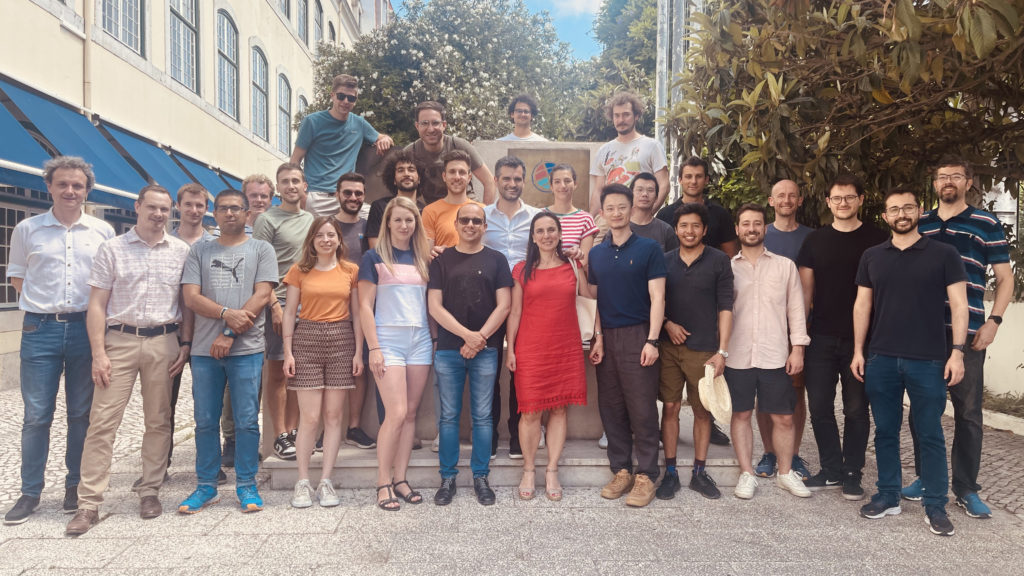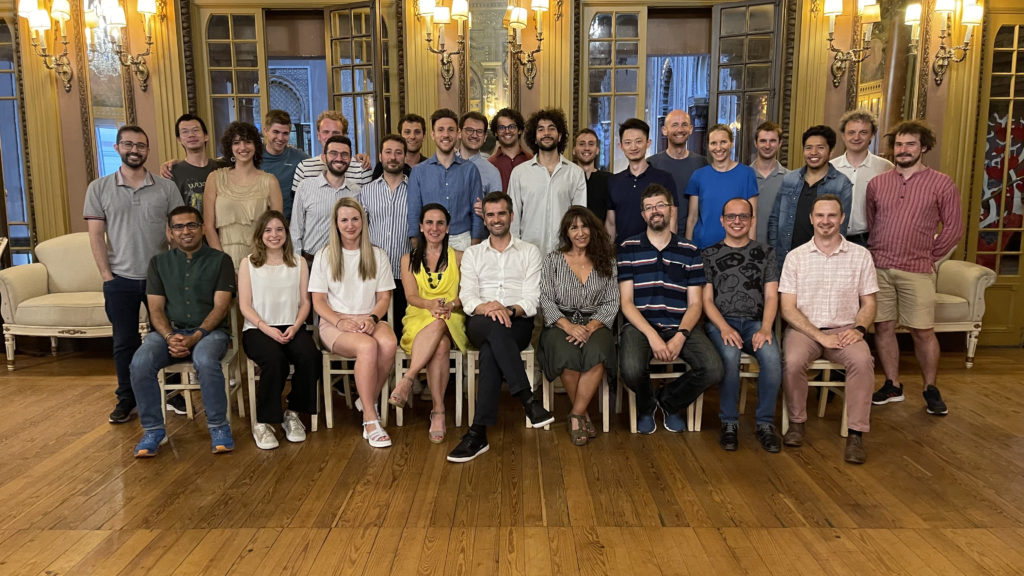Summer Course on Structural Health Monitoring 2023

5 ECTS | June 26-30, 2023, in person (30h) | 15h remotely | MSc and PhD Students
We are happy to announce that this course has been confirmed, with students and instructors from ten European universities!
The main goal of this summer course is to introduce the concept of structural health monitoring (SHM) applied to bridges and special civil structures to MSc and PhD students from several European institutions.
The SHM is posed in the context of a statistical pattern recognition paradigm, rooted in the artificial intelligence field, where machine learning algorithms are essential to perform damage identification, by learning (or modeling) the structural behavior from the experience (past data), following the same principle of the human brain. In order to balance the general concept and the applicability of SHM, this course has been designed to allow students to gain a basic knowledge of SHM with hands-on experiences to demonstrate how SHM can be used for assessing the condition of structural systems, along with the lectures to give some insight into the theory and application examples.
Keywords:
Structural Health Monitoring, Bridges, Machine Learning, Finite Element Modeling, Digital Twins, Climate Change
Funding source
Erasmus+ Program through Blended Intensive Program (BIP), Student Mobility of Education (SME), and Staff Mobility for Teaching (SMT). The BIP covers expenses related to the course organization. SMT and SME cover expenses related to traveling and housing of students in Lisbon.
Which are the host and partners institutions?
Lusófona University is host and responsible for the organization and funding of the course through BIP. Each partner institution is responsible to find students and staff members through SME and SMT (this funding must be coordinated with the international office of each partner institution).
Who can participate?
Each institution can indicate up to four MSc and PhD students interested to speed up the learning process on SHM posed in the context of a statistical pattern recognition paradigm. Additionally, each institution can propose one senior researcher for lecturing (≥4h).
Course material
PowerPoints, books, and research articles. All course material is available from a website in an e-learning platform (Moodle). All students should bring their own laptops.
The evaluation assessment is composed of two components: project presentation and final project report. Small groups of two or three students are invited to design an SHM system or a damage identification strategy on laboratory or real-world structure. The outcome of every group is to be documented in a report and defended in oral examinations (in public and in the form of seminar). Students will receive grades for their presentation and final project report. The grades will be awarded according to the Education and Examination Regulations of the university.
- Describe the historical and current real-world applications of damage identification in the civil engineering field, especially in bridges.
- Conduct damage identification using vibration-based SHM.
- Calibrate, optimize, and apply finite element model updating for deterministic and probabilistic approaches.
- Choose the best method for damage identification as a function of the damage type.
- Evaluating critically the results of damage identification for quality control.
- Run damage identification analysis on commercial software, such as MATLAB and Robot.
| Activity | Teaching mode | Description | Contact hours | Date and Time (WEST) |
|---|---|---|---|---|
| 1 | Remote | Welcome session | 1 | May 9, 2023 (17:00-18:00) |
| 2 | Remote | Introduction to structural health monitoring | 9 | May 16, 18, 23, 25, 30 and June 1, 2023 (17:00-18:30) |
| 3 | Remote | Project’s presentation | 1 | June 6, 2023 (17:00-18:00) |
| 4 | In-person | Lecturing and laboratory activities | 30 | June 26-30, 2023 |
| 5 | Remote | Student’s presentation of final project | 3 | July 19 and 20, 2023 (8:00-9:30) |
| 6 | Remote | Closing session | 1 | July 21, 2023 (8:00-9:00) |
Instructors:
- Eloi Figueiredo, Lusófona University, Portugal
- Ionut Moldovan, Lusófona University, Portugal
- Grzegorz Poprawa, Silesian University of Technology, Poland
- Maria Pina Limongelli, Politecnico di Milano, Italy
- Mihai Nedelcu, Technical University of Cluj-Napoca, Romania
- Pier Francesco Giordano, Politecnico di Milano, Italy
- Roland Kromanis, University of Twente, Netherlands
| Teaching mode | Description | Instructor | Contact hours |
|---|---|---|---|
| Remote | Introduction to structural health monitoring | Eloi Figueiredo and Ionut Moldovan | 15 |
| In-person | Value of Information | Maria Pina Limongelli and Pier Francesco Giordano | 4 |
| In-person | Bridge loading testing | Grzegorz Poprawa | 4 |
| In-person | Model updating | Mihai Nedelcu | 4 |
| In-person | Computer vision-based measurement | Roland Kromanis | 4 |
| In-person | Laboratory | – | 3 |
| In-person | Supervision | – | 11 |
Notes:
- A Transcript of Records and a Certificate of Attendance will be issue at the end of the course.
- The in-person classes will be given at the Laboratory of Civil Engineering and at rooms F.2.3 (computers) and S.0.10 (auditorium).
- We don’t have any vacancies available right now, so for more information please contact Eloi Figueiredo: eloi.figueiredo@ulusofona.pt.
- This is an international course that involves a lot of people, so there may be changes at any time.
- Last update: June 22, 2023.



Avenida do Campo Grande,
376 1749-024 Lisboa, Portugal
Tel.: 217 515 500 | email: info@ulusofona.ptPorto
Rua Augusto Rosa,
Nº 24, 4000-098 Porto - Portugal
Tel.: 222 073 230 | email: info@ulusofona.pt
Gestão de conteúdos por Eloi Figueiredo © 2022 COFAC.